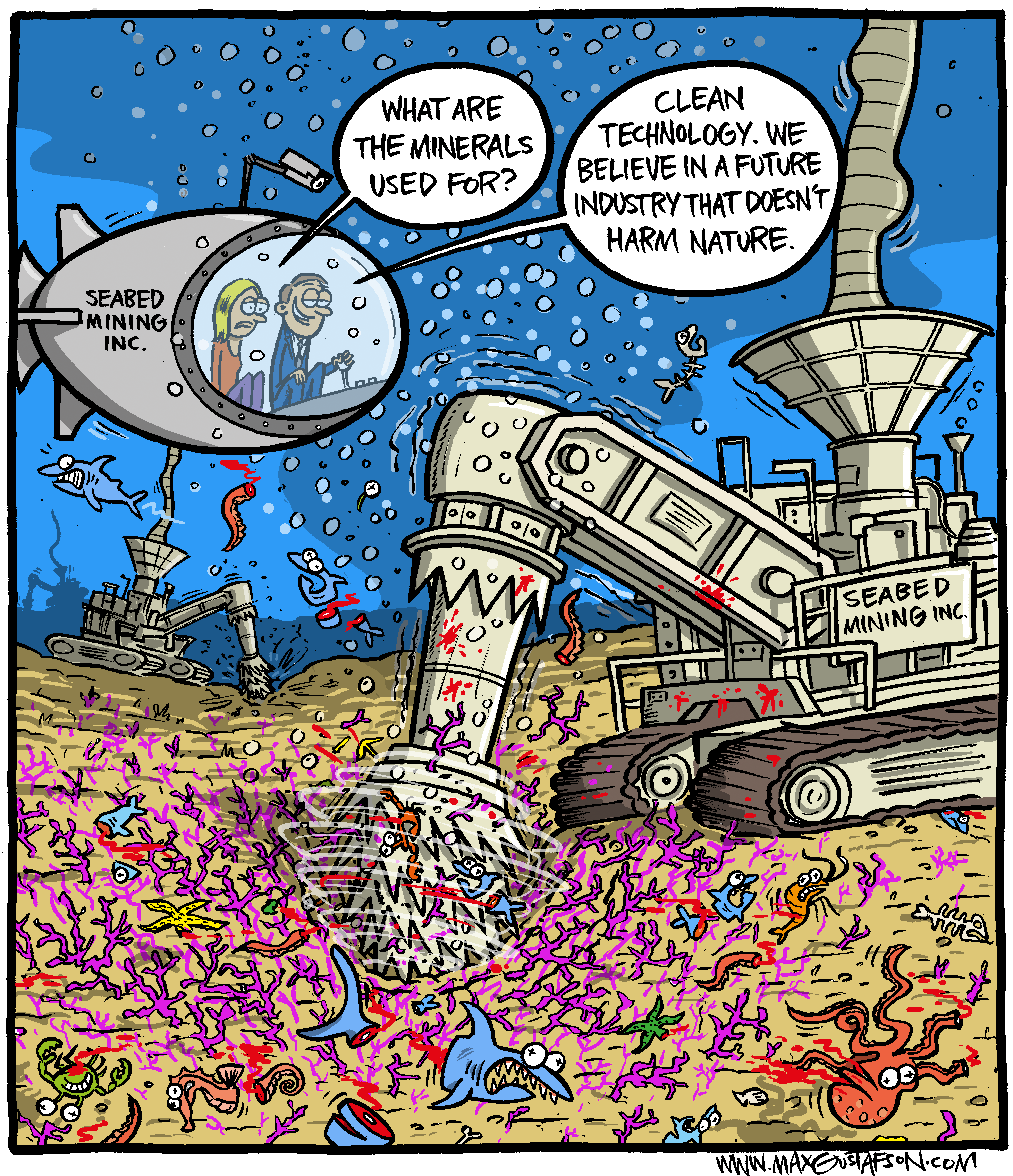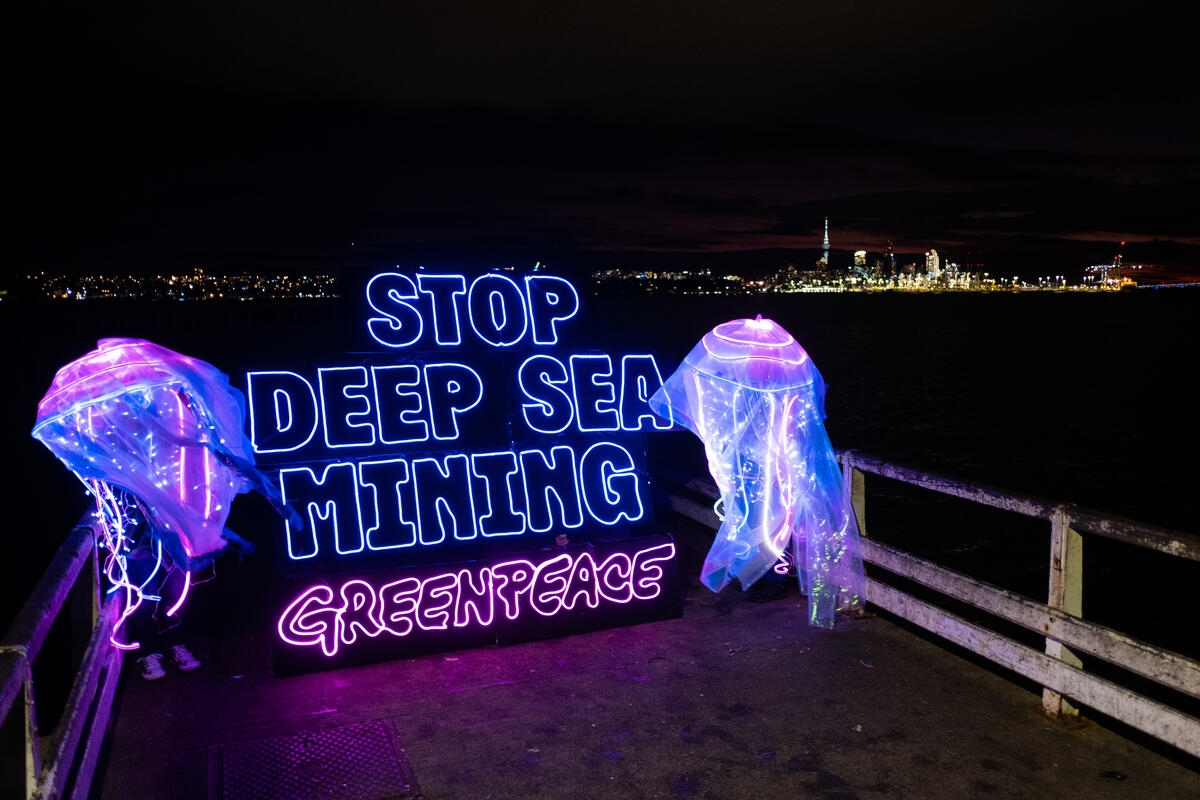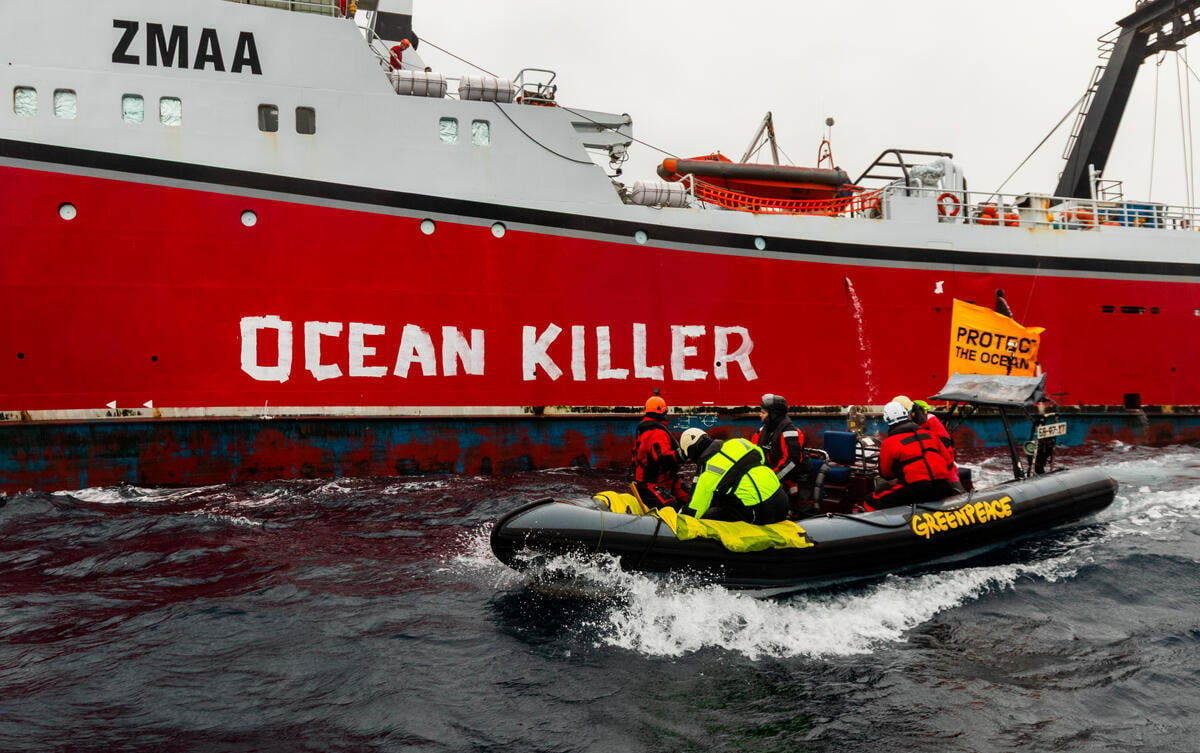If you were planning to send monster machines down to a deep ocean habitat that’s full of creatures found nowhere else on Earth, you’d need a pretty good story to convince politicians that this was a good idea. Right now, that’s exactly what the deep sea mining industry is trying to come up with.
Reckless deep sea mining companies are keen to start plundering the seabed for minerals and metals, risking irreversible wildlife loss and disturbing important carbon stores that could make climate change worse. When we’re facing a climate emergency, deep sea mining is clearly an awful idea.
So how is the industry’s PR machine trying to get politicians and the public to support this destructive industry?
Here are three myths about deep sea mining, and why they’re not what they seem:
Myth 1: It’s a green solution

A handful of deep sea mining companies are promoting this risky business as a “green” solution. They claim that mining metals and minerals from the seabed is needed for clean energy solutions like renewables and electric car batteries. This includes the not-so-subtly named company DeepGreen, whose CEO told governments, “Personally, I get very uncomfortable when people describe us as deep sea miners.”
We should all get uncomfortable with this kind of greenwash. Deep sea mining is far from being a “green” solution and could even make climate change worse: The deep sea is one of our best defenses against climate change as sediment down there helps lock away carbon. Churning up the seabed could disrupt this natural ocean process, and lead to the release of this stored carbon into the ocean and atmosphere – leading to an increase in the earth’s temperature.
What’s more, renewable energy experts have found that a global energy revolution – which would see us use 100% renewables by 2050 – can take place without deep sea mining. A study this year has shown that to keep the global average temperature rise to less than 1.5°C, we need to focus on more resource-efficient design and rapidly increase recycling of materials.S
Myth 2: It helps avoid human rights abuses

Secondly, deep sea miners are trying to tell us that mining the deep sea is the only solution to avoid the human rights abuses, like child labour, hazardous working conditions, environmental and health risks, from mining on land. Defending human rights and conserving the environment are part of the same fight – and mining industries worldwide have undermined both.
Although at first glance the link between deep sea mining and communities on land might not be obvious, given the fact that billions of people worldwide rely on healthy oceans for food security and climate protection, unnecessarily ripping up at the seabed would be a serious mistake.
There is also no evidence that deep sea mining would replace or put an end to mining on land — it would likely just open up another place to mine, thereby increasing the risks of yet more resource exploitation.
The reality is that getting the minerals and metals for our tech doesn’t need to harm anyone – humans, animals or our environment. Which brings us onto the next myth…

Myth 3: It’s essential for your next phone
The third claim the deep sea mining industry love to make, is that the minerals and metals they want to rip out of the seabed are essential for keeping up with the world’s demand for smartphones and laptops.
These claims however haven’t been embraced or substantiated by the IT sector. Tech giants currently don’t have any materials mined from the deep sea in their supply chains right now — and we want to keep it that way.
Given the stark warnings from scientists about the huge risks of opening up the ocean floor for industrial mining, instead of getting behind this dangerous new industry, electronics brands need to signal that it’s time to move away from the endless exploitation of resources to a more ‘circular’ economy.
E-waste, a term to describe electronic products that have become unwanted, obsolete or no longer work, is now the fastest-growing type of waste. A ‘circular’ economy system would see us move from the “take, make, waste” system we currently have for our electronics, that risks an ever-growing environmental impact, to one which minimises waste by recycling metals and minerals found in electronics and focuses on designing smarter gadgets that reduce the use of metals and minerals in the first place.
We need stronger leadership from tech giants. Tesla and Panasonic have committed to phasing out cobalt, one of the target metals for deep sea mining, over the coming decade. But with deep sea mining companies ramping up their political lobbying against a strong Global Ocean Treaty that can protect marine life from exploitation, we need a stronger signal that deep sea mining has no future.
Leading scientists are calling for major change in our use of the Earth’s resources to reverse environmentally destructive and wasteful production and consumption patterns. The companies that want to mine the seafloor for profit are trying to claim they are essential to the future. They’re not. The future belongs to all of us – and a safe future means healthy oceans.
Louisa Casson is a campaigner on board the Greenpeace ship Esperanza




